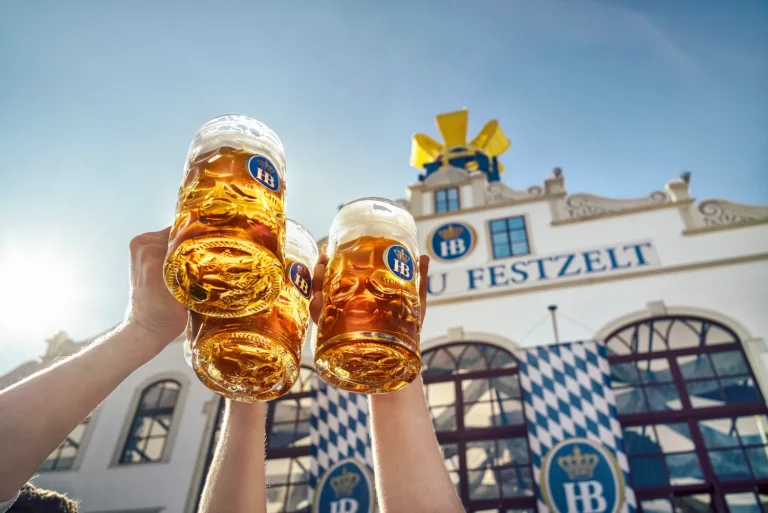Munich holds a reputation as the capital of beer tradition in Europe. Its breweries, taverns, and festivals represent centuries of refinement that shaped Bavarian identity. The art of beer here extends far beyond Oktoberfest tents and souvenir mugs. True appreciation comes through the rhythm of local life, where every sip carries history and craft.
If you are traveling alone, a München escort can add company during your exploration of the city’s taverns or gardens. The presence of thoughtful conversation transforms a tasting session into a calm cultural immersion that feels closer to how locals experience their favorite places.
Beer in Munich forms part of daily life, not a spectacle for visitors. Locals treat it as both craft and community, something to enjoy with respect rather than excess. Understanding that spirit allows you to blend naturally with residents and experience the city beyond the surface of tourism.
The Foundation of Munich’s Beer Identity
The story begins with the Reinheitsgebot, the Bavarian Beer Purity Law established in 1516. It dictated that beer could contain only water, barley, and hops. That rule defined centuries of brewing discipline and remains a cornerstone of Munich’s pride. Every major brewery within the city continues to honor that principle.
Munich developed its brewery network around noble estates and monasteries that produced beer for both the public and the crown. Augustiner, Paulaner, Hacker-Pschorr, Hofbräu, Löwenbräu, and Spaten formed the classic “Big Six,” each with its own house style and loyal following. Their consistency built trust among locals, who measure authenticity by craftsmanship rather than marketing.
Understanding those origins helps travelers engage with the culture on local terms. Drinking beer in Munich means joining a living tradition where simplicity and perfection hold equal weight.
Where to Drink Like a Local
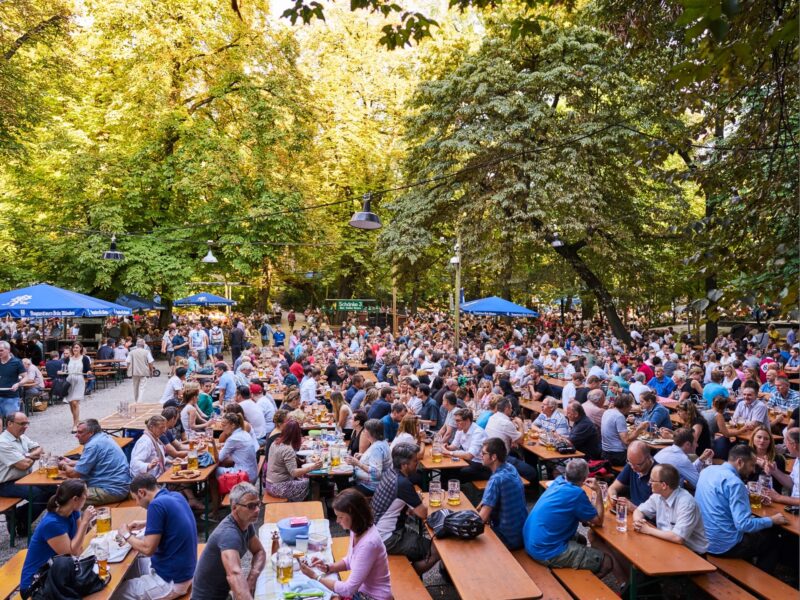
Augustiner-Keller
Augustiner-Keller stands as Munich’s most respected beer garden, located near Hauptbahnhof. The space holds chestnut trees, wooden benches, and a self-service area that defines Bavarian social life. Locals gather after work to share pretzels, roasted chicken, and mugs of unfiltered Edelstoff. The setting encourages calm conversation instead of noise, reflecting the original essence of beer culture in Bavaria.
Schneider Bräuhaus
Situated near Marienplatz, Schneider Bräuhaus specializes in wheat beer and traditional dishes. Locals appreciate its consistency and respectful service. Wooden interiors, long communal tables, and quiet background chatter create an atmosphere where time slows naturally. Tourists often walk past it without realizing they have missed one of the city’s finest authentic spots.
Hofbräukeller
Unlike the more famous Hofbräuhaus packed with cameras and crowds, Hofbräukeller in Haidhausen serves the same beer with genuine neighborhood calm. Families, professionals, and students share the terrace beneath trees that shade rows of benches. A relaxed crowd reflects real Munich life away from spectacle.
Giesinger Bräu
Independent breweries also flourish. Giesinger Bräu represents Munich’s new generation of craft brewers who respect tradition while introducing creativity. Its pale lagers and seasonal specialties highlight precision and local ingredients. The brewery’s small taproom gives visitors an intimate window into the craft movement growing within the city.
Exploring Beer Beyond the Gardens
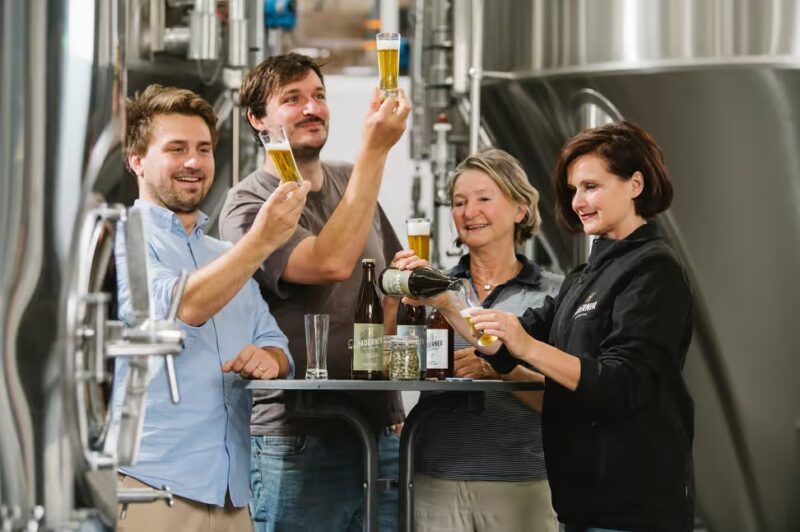
Munich offers countless settings to deepen appreciation. Each environment reveals a different layer of its beer identity.
Brewery Tours
Visiting a brewery gives insight into the meticulous process that defines Bavarian quality. Tours at Augustiner or Paulaner showcase copper kettles, fermentation tanks, and the sensory science of brewing. Guides often include tastings that highlight differences between unfiltered, pale, and dark varieties. Observing the precision behind each batch deepens respect for what might otherwise seem simple.
Beer Museums and Exhibitions
The Beer and Oktoberfest Museum on Sterneckerstrasse explains the historical and cultural evolution of brewing in Bavaria. Exhibits connect the role of beer to trade, religion, and daily customs. The museum occupies a medieval house, reinforcing the link between time and tradition.
Smaller Taverns and Local Corners
Neighborhood taverns across Giesing, Schwabing, and Sendling often serve house beers brewed on-site or nearby. Those smaller spots attract regulars rather than tourists. Their quiet authenticity makes them ideal places for conversation and observation. Sitting among locals who treat beer as routine rather than entertainment gives a clear picture of Munich’s spirit.
Pairing Beer With Food
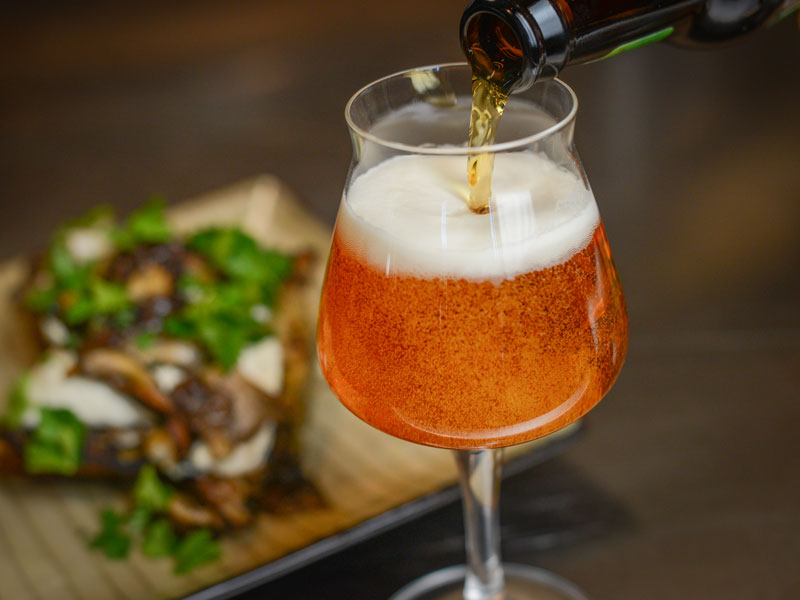
Beer in Munich never appears alone. Each type has a perfect companion dish.
- Helles (Pale Lager) pairs with roast chicken or schnitzel. Its mild malt sweetness complements savory dishes.
- Weissbier (Wheat Beer) matches with Weisswurst and pretzels, balancing light spice with gentle citrus notes.
- Dunkel (Dark Lager) suits roasted pork, gravy-based dishes, or hearty bread dumplings.
- Bock and Doppelbock accompany cheese platters or sweet pastries, enhancing contrast through strength and depth.
Learning those pairings ensures every meal aligns with local habits rather than tourist menus. Munich’s waiters appreciate guests who recognize the care behind each combination.
The Social Dimension of Beer
Beer acts as a unifying language across Munich. It bridges professions, generations, and backgrounds. Conversations at shared tables create friendships without pretense. That egalitarian element defines Bavarian hospitality more than any slogan.
In a beer garden, strangers talk freely without hierarchy. A university student, banker, and craftsman can share the same table and discuss life over mugs of Edelstoff. The simplicity of beer fosters connection, turning everyday moments into quiet celebration.
Company from Louisa Escort adds refinement without intrusion, maintaining the calm rhythm of Munich’s environment. The social comfort of such companionship aligns perfectly with the city’s graceful approach to enjoyment.
Seasonal Highlights for Beer Enthusiasts
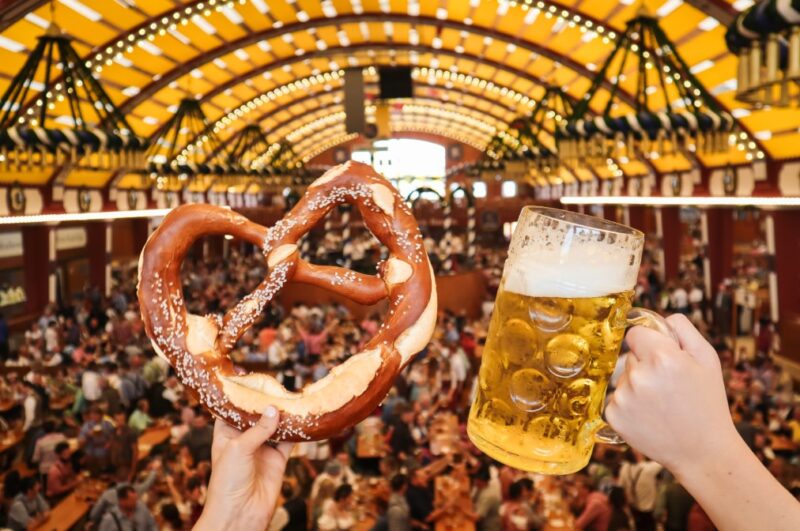
Frühlingfest
The spring festival at Theresienwiese opens the beer season each April. It mirrors Oktoberfest in structure but draws a largely local crowd. Tents serve fresh seasonal brews and traditional dishes in an atmosphere free of mass tourism.
Starkbierzeit
Lent season marks the appearance of strong beers like Salvator and Triumphator. Breweries host smaller festivals celebrating those rich, malty brews. Locals consider it a connoisseur’s period, less noise, more appreciation.
Sommergärten
Summer transforms Munich’s open spaces into living rooms under trees. Evening light lasts until late, and beer gardens fill with calm laughter. The season represents the heart of the Bavarian lifestyle.
Autumn and Winter Traditions
After Oktoberfest, many breweries release winter specialties such as Christmas Bock or seasonal Märzen. Taverns decorate with pine branches and candles, creating warmth against the cold. The quieter months often provide the most authentic encounters with Munich’s beer life.
Final Reflection
Munich’s beer culture represents discipline, harmony, and shared humanity. To feel part of it, one must slow down and engage sincerely. Every mug tells a story of labor, patience, and regional pride. True appreciation grows through humility and presence, not through celebration alone.

